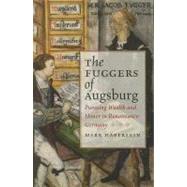The Fuggers of Augsburg
, by Haberlein, Mark- ISBN: 9780813932446 | 0813932440
- Cover: Hardcover
- Copyright: 3/12/2012
As the wealthiest German merchant family of the sixteenth century, the Fuggers have attracted wide scholarly attention. In contrast to the other famous merchant family of the period, the Medici of Florence, however, no English-language work on them has been available until now. The Fuggers of Augsburg offers a concise and engaging overview that builds on the latest scholarly literature and the author's own work on sixteenth-century merchant capitalism. Mark Häberlein traces the history of the family from the weaver Hans Fugger's immigration to the imperial city of Augsburg in 1367 to the end of the Thirty Years' War in 1648. Because the Fuggers' extensive business activities involved long-distance trade, mining, state finance, and overseas ventures, the family exemplifies the meanings of globalization at the beginning of the modern age. The book also covers the political, social, and cultural roles of the Fuggers: their patronage of Renaissance artists, the founding of the largest social housing project of its time, their support of Catholicism in a city that largely turned Protestant during the Reformation, and their rise from urban merchants to imperial counts and feudal lords. Häberlein argues that the Fuggers organized their social rise in a way that allowed them to be merchants and feudal landholders, burghers and noblemen at the same time. Their story therefore provides a window on social mobility, cultural patronage, religion, and values during the Renaissance and the Reformation.







